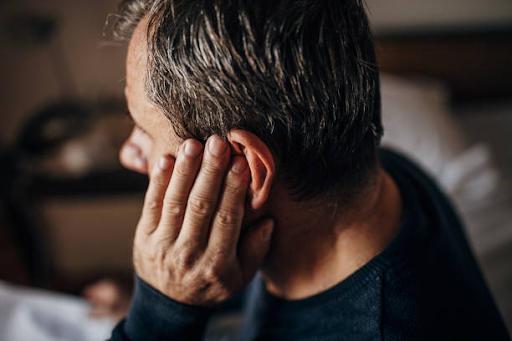When thinking about our health, we often focus on areas like diet, exercise, or mental well-being. However, ear care is just as important and often overlooked. Proper ear care doesn’t just keep infections at bay; it also plays a critical role in maintaining your ability to hear clearly throughout your life. Taking simple steps now can help you prevent hearing loss and keep your ears functioning at their best.
Why Ear Care Matters
Your ears are sensitive organs that allow you to hear and maintain balance. Everyday noises, improper cleaning methods, or even neglect can affect them. Over time, these small damages can add up, leading to long-term problems like hearing loss. Keeping your ears clean, protecting them from loud noises, and getting regular hearing health exams can prevent many common issues.
Neglecting ear care can result in hearing damage that becomes irreversible. However, you don’t need to wait until there’s a problem to take action. Regular ear care can ensure that your hearing stays strong for years to come.
Protect Your Ears from Noise
We’re surrounded by noise daily, from traffic to music. While you may not always have control over your environment, you can take steps to protect your ears from excessive noise. Prolonged exposure to loud sounds can lead to permanent hearing loss, which is why prevention is key.
If you’re heading to a concert or work in a loud environment, make ear protection a habit. Wearing earplugs or noise-canceling headphones can significantly reduce the harmful effects of loud noise. Even when using earbuds or headphones, be mindful of the volume level. A good rule of thumb is the 60/60 rule—listening at 60% volume for no more than 60 minutes at a time.
Protecting your ears from loud noises isn’t just about comfort in the moment; it’s about ensuring you can hear well in the future.
Avoid Cotton Swabs for Cleaning
Many people mistakenly believe that cotton swabs are the best tool for cleaning their ears. However, using cotton swabs can push earwax further into the ear canal, causing blockages or even damaging your eardrum. Earwax is natural and typically works its way out on its own, helping to protect your ear canal from dust and debris.
If you feel that earwax buildup is affecting your hearing, it’s better to consult a healthcare professional rather than attempt to remove it yourself. A hearing health exam can determine whether professional ear cleaning is needed. In some cases, home remedies such as using a few drops of mineral oil or a saline solution can help soften earwax, allowing it to exit naturally.
Keep Your Ears Dry
Keeping your ears dry is another important aspect of ear care, especially if you spend a lot of time in the water. Swimmers and those who shower regularly are more prone to ear infections like swimmer’s ear. Water trapped in the ear can cause bacteria to grow, leading to painful infections.
To avoid this, gently dry your ears after swimming or showering using a towel or tilting your head to allow water to escape. You can also use earplugs designed for swimmers to help keep water out. Avoid inserting objects like towels or fingers into your ear canal, as this can introduce bacteria or damage the delicate skin inside.
Schedule Regular Hearing Health Exams
Just like regular checkups for your eyes or teeth, hearing health exams should be a routine part of your healthcare. Many people wait until they experience noticeable hearing loss before seeking help, but preventive care can catch issues early and prevent them from worsening.
A hearing health exam not only assesses how well you can hear but also checks for signs of ear damage, infections, or excessive earwax buildup. Your audiologist will also help you understand the impact of any hearing challenges you may face and guide you on how to protect your hearing moving forward. Getting regular exams can give you peace of mind and ensure your ears stay healthy as you age.
Use Safe Ear Care Products
The market is flooded with ear care products, but not all of them are safe or effective. Be cautious about what you put in your ears. Some over-the-counter ear cleaning kits can be too harsh or cause irritation. Avoid using products that promise to dissolve earwax without proper instructions from a healthcare provider. Ear candles, for instance, are marketed as a natural way to clean your ears, but they can cause burns and even damage your ear canal.
Instead, focus on gentle care. Use only products recommended by professionals, and always follow instructions carefully. When in doubt, consult an audiologist who can recommend ear care products suited to your needs.
Stay Informed About Hearing Loss
Hearing loss doesn’t happen overnight—it often develops slowly over time. Being aware of the early signs can help you take action sooner rather than later. Common signs of hearing loss include asking people to repeat themselves, turning up the volume on the TV or phone, and having trouble understanding conversations in noisy environments.
If you notice any of these signs, don’t wait to get help. Early detection and intervention can slow down the progression of hearing loss. A hearing health exam will determine the extent of any hearing damage and what steps can be taken to manage it. Depending on the results, treatments such as hearing aids or other assistive devices might be recommended.
Make Ear Care Part of Your Routine
Maintaining healthy ears is easier than many people think. Incorporate ear care into your regular health routine, just like brushing your teeth or exercising. By taking small, consistent steps, you can protect your ears from potential damage and enjoy better hearing for years to come.
Start by being mindful of noise exposure, avoid cotton swabs, and keep your ears dry after water activities. Most importantly, don’t skip your hearing health exams. These small habits can go a long way in preventing hearing loss and ensuring your ears stay in top condition.



